I Attended Munich's First Official Oktoberfest in 3 Years Since the Pandemic — Here’s What It Was Like
Oktoberfest returned to Munich after a three-year pandemic pause.
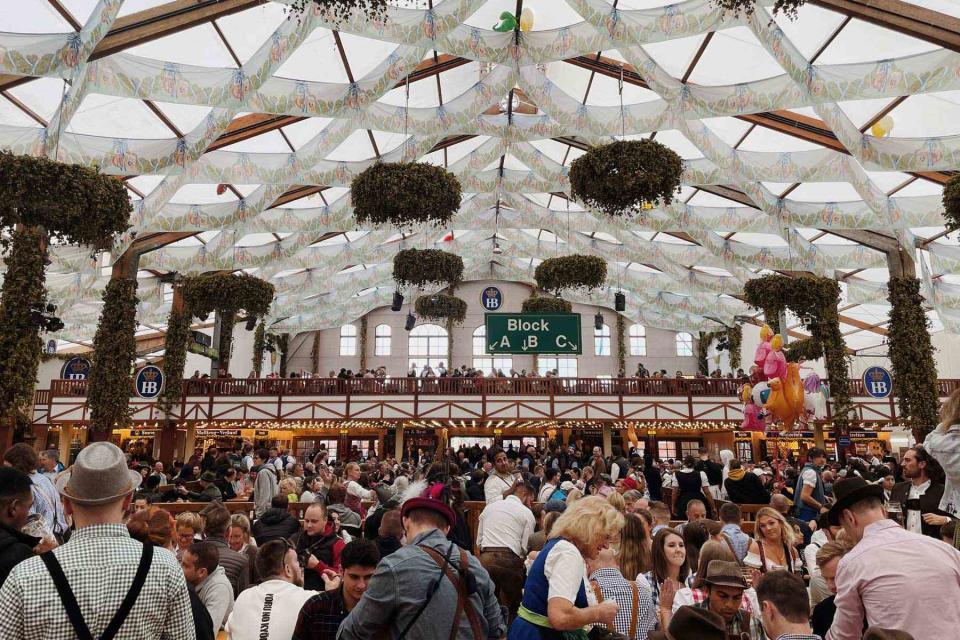
Olivia Niland
After a two-year pause due to the pandemic, Oktoberfest roared back to life in Munich, Germany, and revelers from around the world donned their dirndls and lederhosen to toast to its return.
Held annually in Munich since 1810, Oktoberfest was canceled for the first time since World War II in both 2020 and 2021 amid the COVID-19 pandemic. The 187th festival is expected to draw more than six million people from around the world to its bustling Bavarian beer tents between Sept. 17 and Oct. 3, and organizers said Oktoberfest’s return this year signals optimism in a world still navigating the pandemic.
“It’s an important sign for the local economy and society, but it's also a huge statement to the world,” said Lorenz Stiftl, host of Oktoberfest’s new folk singing tent, Volkssängerzelt Schützenlisl. “Public life after or with COVID-19 can happen again.”
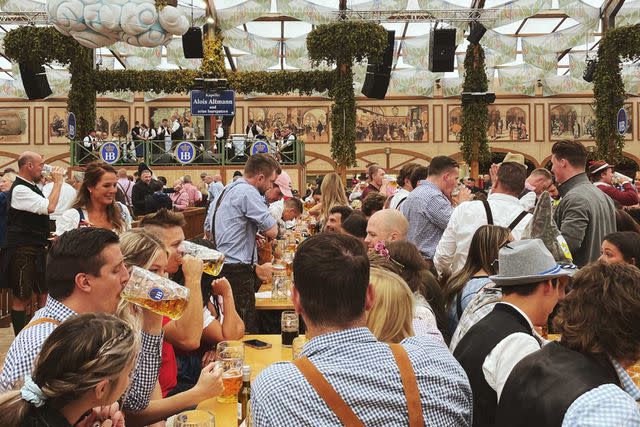
Olivia Niland
Guests are free to wear masks, and employees are tested daily, Stiftl said. But with no coronavirus testing or vaccination requirements for attendees, this year’s festival looked largely the same as previous years, with guests enjoying carnival rides, games, and food on the Theresienwiese — the Oktoberfest fairgrounds — and downing liters of beer, sausages, and pretzels in the event tents.
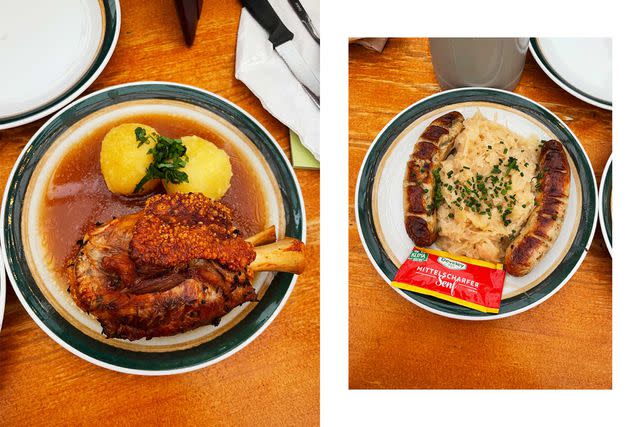
Olivia Niland
Oktoberfest’s massive beer halls, which can seat thousands of people at a time, run the gamut from traditional and family-friendly experiences to energetic, club-like atmospheres with live music, singing, and dancing. A section known as the Oide Wiesn, which literally means old Oktoberfest, offers vintage carnival rides and tents showcasing traditional folk music, dancing, and Bavarian history that hearken back to Oktoberfest events of years past.
In the Oide Wiesn’s Festzelt Tradition tent, brass bands played and guests raised their beer mugs as members of Ohio’s Bavarian Sports Club took center stage for a lively folk dance performance.
“We have a good time performing and passing on the tradition,” said club member and dancer Mike Willinger. “We were very proud to be invited and asked to dance.”
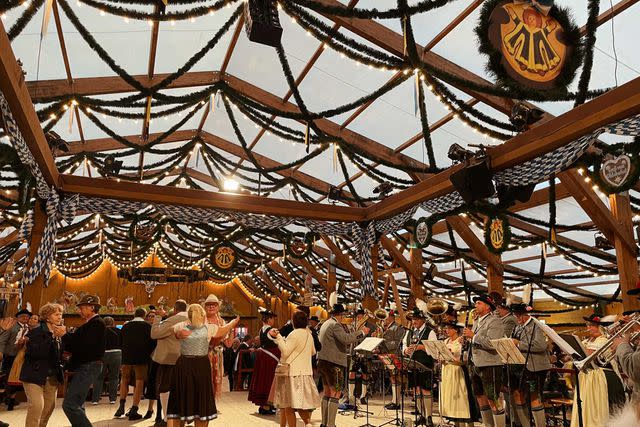
Olivia Niland
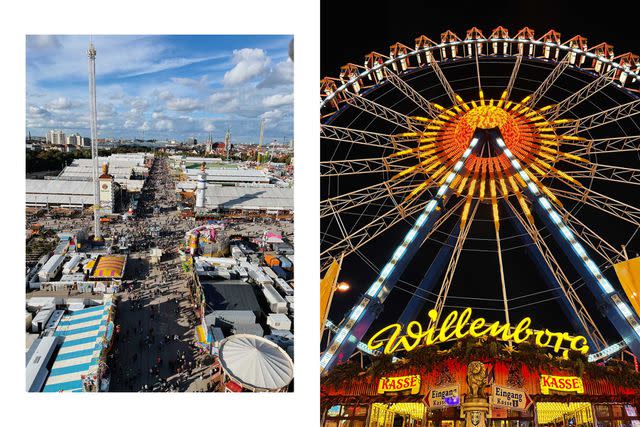
Olivia Niland
While Oktoberfest draws plenty of international revelers — largely from the U.S. and Italy, according to official estimates — Munich residents and people from the surrounding Bavarian region make up the majority of attendees.
“I’m very grateful that it can happen this year, I missed it very much,” said Isabella Rosenau, a carpenter who holds the title of Schwarzachkönigin — festival queen — for her nearby Bavarian town of Greding. Rosenau was accessorizing her dirndl with a sash and sparkling tiara.
“I might come back next week undercover,” she added, laughing.
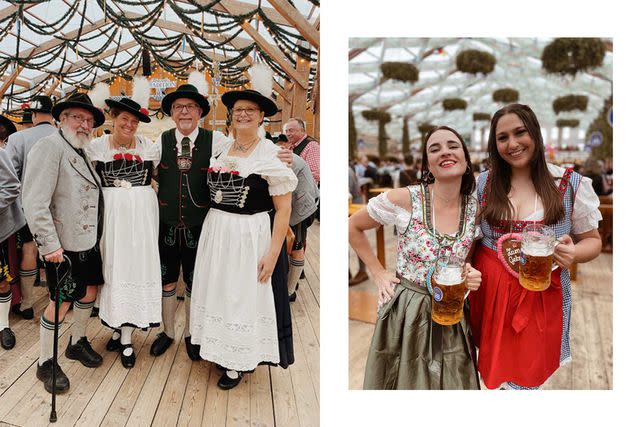
Olivia Niland
The festival “is like a fifth season to us,” said Stefan Hempl, who has worked for the Hofbräu München brewery for 25 years and in its Oktoberfest tent — the festival’s second-largest with a capacity of up to 10,000 guests — for the past 15.
Hofbräu is one of just six Munich breweries, along with Augustiner, Hacker-Pschorr, Löwenbräu, Paulaner, and Spaten, that provide beer for each Oktoberfest. In order for its beer to be served at the festival, every brewery must follow specific, long-standing requirements, which include using Munich well water.
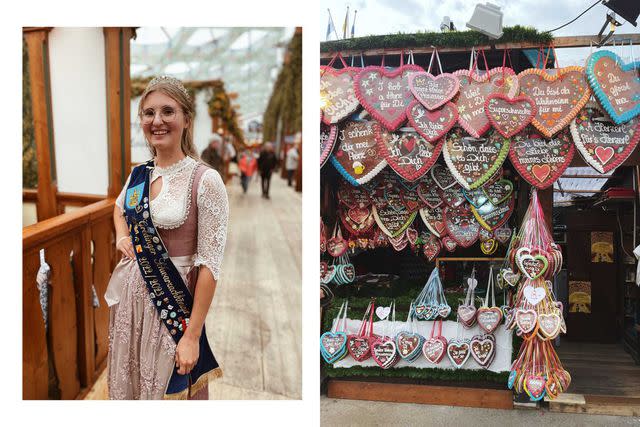
Olivia Niland
For brewers, Oktoberfest serves as both a social gathering and something like an industry conference, during which they’re able to meet with international importers. While they’ve managed virtually during the pandemic, Hempl said this year’s festival is being welcomed as a long-awaited return to Bavarian tradition for both Oktoberfest’s breweries and attendees.
“Virtual is not the same as meeting and having a beer or good meal together,” said Hempl. “It’s not just the economic situation. The liters of beer being served at Oktoberfest are not the most important thing; it’s the overall atmosphere and people from all over the world. We're happy, of course, to have Oktoberfest back again.”

